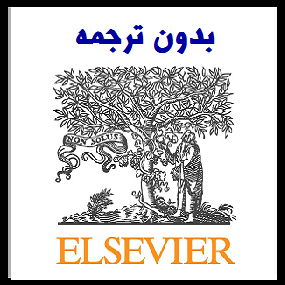مقاله انگلیسی رهبری تحول گرا و بازیابی خدمات (2018 الزویر)


| عنوان فارسی مقاله | رهبری تحول گرا و بازیابی خدمات: اثر واسطه ای از کارهای عاطفی و تاثیر فرهنگ |
| عنوان انگلیسی مقاله | Transformational leadership and service recovery performance: The mediating effect of emotional labor and the influence of culture |
| نمونه مقاله انگلیسی | ۱٫ Introduction
Employee service performance is an important source of a hospitality organization’s competitive advantage as it helps distinguish one hospitality organization over its competitors. In addition to being able to provide excellence in service, service employees in the hospitality industry are also expected to provide service recovery performance––resolving a service failure to satisfy a customer and meet customer expectations (Babakus et al., 2003; Guchait et al., 2014). Examples of service failures common in the hotel industry that require service recovery performance include unavailable rooms during check-in, providing the wrong bill, internet not working, unclean rooms, food not properly cooked, and services not available during stay (Lee et al., 2011a). Service recovery performance has been linked to multiple positive outcomes, including customer satisfaction, customer loyalty, positive word of mouth, and intent to purchase (Ha and Jang, 2009; Liao, 2007; Lin, 2010a). Because effective service recovery performance is crucial for the success of the hospitality businesses, past research has examined factors that can enhance service recovery performance (Boshoff and Allen, 2000; Masoud and Hmeidan, 2013). Although the service recovery performance literature has examined several organizational and individual antecedents (Kim and Oh, 2012; Lin, 2010b; Boshoff and Allen, 2000), research has failed to examine the link between leadership and service recovery performance. This is a particularly surprising gap in the service performance recovery literature because research has demonstrated that leadership style and behaviors are vital for overall employee performance (Babakus et al., 2003; Guchait et al., 2014). Specifically, research shows that transformational leadership positively influences employee performance in service contexts (Lee et al., 2011b; Liao and Chuang, 2007). Transformational leaders engage and motivate others to increase expectations and performance (Bass, 1985), which can include their service performance. Although transformational leadership has been linked to employee performance in service jobs and the service literature has also theorized and discussed the possible link between transformational leadership and service recovery performance (Lin, 2010b; Punjaisri et al., 2013), research has yet to examine this relationship. Since transformational leadership is a possible distal antecedent, the relationship between transformational leadership and service recovery performance has not been researched or examined. In fact, research shows that transformational leaders evoke emotion and appeal to others on an emotional level, thereby affecting employee performance through emotions (Dasborough, 2006; Dasborough and Ashkanasy, 2002). Thus, the current study addresses this gap in the service recovery performance literature by examining emotional labor as a potential mediator of the transformational leadership and service recovery performance relationship. Not only are hospitality employees required to perform their core job tasks, but hospitality employees must also manage their emotions by expressing positive emotions at work, especially while interacting with customers (Kim, 2008). Emotional behavior and effort of this kind, as well as the control of feelings in response to organizational demands, is recognized as emotional labor (Lam and Chen, 2012; Grandey, 2000; Hochschild, 1979). Thus, the current study focuses on transformational leadership as a distal antecedent of service recovery performance through emotional labor. |
| نمونه ترجمه کامپیوتری | مقدمه
عملکرد خدمات کارکنان منبع مهمی از مزیت رقابتی سازمان مهمان نوازی است، زیرا این امر به تشخیص یک سازمان مهمان نوازی بر رقبای آن کمک می کند. علاوه بر اینکه قادر به ارائه تعالی در خدمات، کارمندان خدمات در صنعت مهمان نوازی نیز انتظار می رود که عملکرد بهبود خدمات را فراهم کنند – حل یک شکست خدماتی برای برآوردن مشتری و برآوردن انتظارات مشتری (Babakus et al.، 2003؛ Guchait et al .، 2014). نمونه هایی از خرابی های خدماتی که در صنعت هتل ها اتفاق می افتد و نیازمند عملکرد بازیابی خدمات هستند شامل اتاق های غیر قابل دسترس در هنگام ورود به سیستم، ارائه لایحه اشتباه، اینترنت در حال اجرا، اتاق های خالص، غذا ناهار و خدماتی که در طول اقامت در دسترس نیست (Lee et al. ، 2011a). عملکرد بازیابی خدمات با نتایج مثبت چندگانه، از جمله رضایت مشتری، وفاداری مشتری، گفتار مثبت، و قصد خرید (و و ژانگ، 2009؛ لیائو، 2007؛ لین، 2010a) ارتباط یافته است. از آنجا که عملکرد بازیابی خدمات موثر برای موفقیت کسب و کار مهمان نوازی حیاتی است، تحقیقات گذشته عوامل مورد بررسی را بررسی می کند که می تواند بهبود عملکرد خدمات را بهبود بخشد (Boshoff and Allen، 2000؛ مسعود و همادان، 2013). اگر چه ادبیات بازیابی خدمات به بررسی چندین پیشینه سازمانی و فردی پرداخته است (کیم و اوه، 2012؛ Lin، 2010b؛ Boshoff and Allen، 2000)، تحقیق نتوانسته است ارتباط بین رهبری و عملکرد بازیابی خدمات را بررسی کند. این یک شکاف ویژه در ادبیات بازیابی عملکرد خدمات است زیرا تحقیق نشان داده است که سبک رهبری و رفتارها برای عملکرد کلی کارکنان حیاتی است (Babakus et al.، 2003؛ Guchait et al.، 2014). به طور خاص، تحقیقات نشان می دهد که رهبری تحول گرا به طور مثبت بر عملکرد کارکنان در زمینه های خدمات تأثیر می گذارد (Lee et al.، 2011b؛ Liao and Chuang، 2007). رهبران تحول گرا دیگران را در افزایش و افزایش انتظارات و عملکرد (Bass، 1985)، که می توانند عملکرد خدمات خود را شامل شوند، تعامل و انگیزه می دهند. اگر چه رهبری تحول گرا با عملکرد کارکنان در مشاغل خدمات مرتبط است و ادبیات خدمات همچنین نظریه و ارتباط بین رهبری تحول آفرین و بهبود بازیابی خدمات را مورد بحث قرار داده است (Lin، 2010b؛ Punjaisri et al.، 2013)، پژوهش هنوز به بررسی این ارتباط. از آنجایی که رهبری تحولآمیز یک پیش داوری احتمالی است، ارتباط بین رهبری تحول گرا و بهبود بازیابی خدمات تحقیق یا بررسی نشده است. در واقع، تحقیقات نشان می دهد رهبران تحول گرایانه موجب احساسات و تجدید نظر به دیگران در سطح عاطفی می شوند، بنابراین بر عملکرد کارکنان از طریق احساسات تاثیر می گذارند (Dasborough، 2006؛ Dasborough and Ashkanasy، 2002). بنابراین، مطالعه فعلی این شکاف را در ادبیات بهبود عملکرد خدمات با بررسی کار عاطفی به عنوان یک واسطه بالقوه از رهبری تحول و رابطه عملکرد بهبود خدمات است. کارکنان مهمان نوازی نه تنها برای انجام وظایف اصلی شغلی خود، بلکه کارکنان مهمان نوازی نیز باید احساسات خود را با ابراز احساسات مثبت در محل کار، به خصوص هنگام تعامل با مشتریان مدیریت کنند (Kim، 2008). رفتار احساسی و تلاش این نوع، و همچنین کنترل احساسات در پاسخ به خواسته های سازمانی، به عنوان کار عاطفی شناخته شده است (لام و چن، 2012؛ گراندی، 2000؛ Hochschild، 1979). بنابراین، پژوهش حاضر بر رهبری تحول گرا به عنوان یک پیش درآمد پیش از بازیابی خدمات از طریق کار عاطفی تمرکز دارد. توجه؛ (این ترجمه توسط نرم افزار انجام شده و ویرایش نشده است و احتمال وجود اشتباه در آن وجود دارد. در صورت ثبت سفارش، ترجمه توسط مترجمین مجرب انجام خواهد شد. برای مشاهده نمونه ترجمه های تخصصی و اخیر مترجمین جهت اطمینان از کیفیت ترجمه، اینجا کلیک نمایید.) |
| سال انتشار | 2018 |
| ناشر | الزویر |
| مجله | مجله بین المللی مدیریت مهمانداری – International Journal of Hospitality Management |
| کلمات کلیدی | نیروی احساسی، رهبری تحول گرا،عملکرد بازیابی سرویس، فرهنگ |
| کلمات کلیدی انگلیسی |
Emotional labor, Transformational leadership, Service recovery performance, Culture |
| صفحات مقاله انگلیسی | 9 |
| مناسب برای رشته | مدیریت |
| مناسب برای گرایش | مدیریت اجرایی، مدیریت عملکرد |
| توضحیات | این مقاله انگلیسی جدید بوده و تا کنون ترجمه نشده است. جهت ثبت سفارش ترجمه از لینکهای زیر استفاده نمایید. |
| دانلود مقاله انگلیسی | ○ دانلود رایگان مقاله انگلیسی با فرمت pdf (کلیک کنید) |
| سفارش ترجمه فارسی | ○ سفارش انجام ترجمه و تایپ این مقاله (کلیک کنید) |
| سایر مقالات این رشته | ○ مشاهده سایر مقالات رشته مدیریت (کلیک کنید) |


